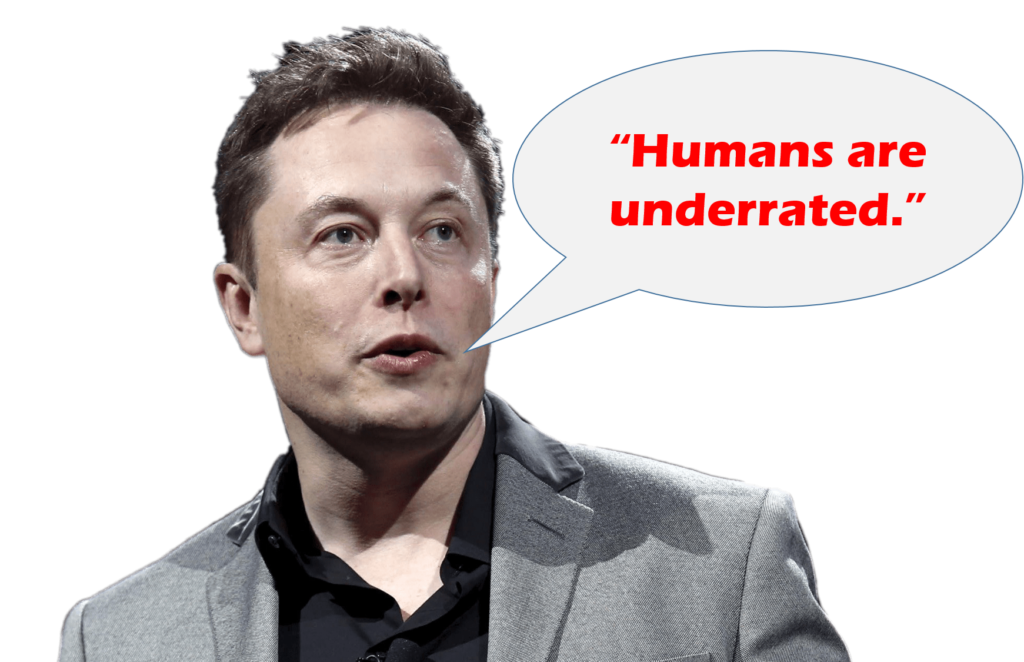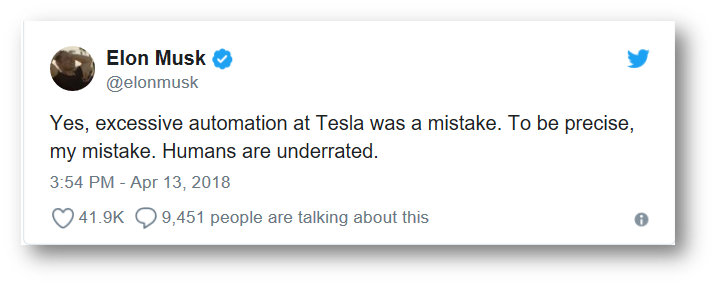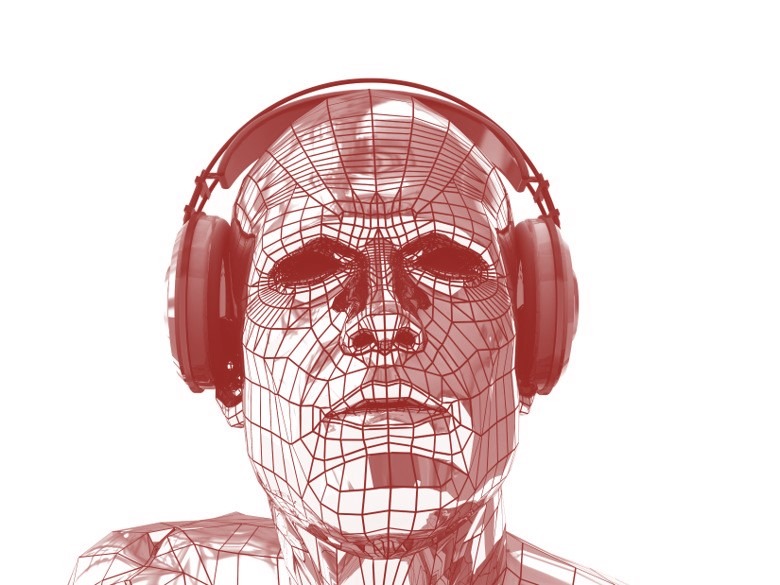
A G.M. I consulted a number of years ago would sometimes offer up this lamentation about the radio industry:
“This would be a great business if it weren’t for all these people.”
He was kidding (sort of). But yes, if radio stations operated like well-oiled machines where everyone just does their job, what a wonderful world this would be. Instead, so many stations are real-life soap operas, replete with drama and gossip. This has nothing to do with consolidation or any of the excuses so many people make for why the business isn’t what it used to be.
Radio stations were like this back in the days of cart machines, splicing blocks, and logs filled in by hand. Having not really worked in other industries, I really don’t know for sure, but my guess is that it’s probably exactly this way on the loading dock, hair salon, and teachers’ lounge.
So, you can understand why the Robotic Age is appealing to a lot of managers and owners. It’s not just about saving money and eliminating jobs. It’s about cool, clean, seamless efficiency – without the complaining, the whining, the egos, and of course, the overhead.
And I have to believe that’s part of what Elon Musk has to be thinking about – all the time. Every time I write a blog post that mentions him, I get hit with a rash of responses that run the gamut. Some revere the CEO of Tesla and SpaceX, viewing him as the Henry Ford or Steve Jobs of his era. But others are highly critical of the outgoing entrepreneur, suggesting that he is a scam artist and/or that his companies are on the brink of financial ruin.
Interestingly, when you follow Musk on Twitter – @elonmusk – you learn he’s funny, self-deprecating, and often very transparent about what’s going right at his companies, as well as what’s going wrong, along with his commentary about technology and society.
He was recently interviewed by Gayle King as Tesla continues to find itself in the news headlines. These days, they are facing severe production problems with the accessibly priced Tesla Model 3. Despite the promises and projections, Musk’s upstart auto company is struggling to meet its goals.
As a result, the company’s stock price has fluctuated wildly in the last several weeks, as speculation about Musk delivering on his promises are debated and analyzed every day on CNBC and other financial media outlets.
During the interview with King, that topic came up. And Musk admitted the error in over-reliance on robots, at the expense of having more human beings involved in the production process.

And so, at a time when robotics, automation, algorithms, and AI are rapidly making their way across the business spectrum, here’s America’s “King of Tech” saying he should have let his people do their jobs, rather than be so dependent on machines.
That’s an interesting admission from a guy who frankly isn’t famous for mea culpas. And yet, here’s another example of a high-profile company over-relying on robots at the expense of the human touch.
 That’s been a frequent topic in this blog regarding the radio industry – and for good reason. Like Musk, radio operators have sought to save money by cutting back on content – specifically, doubling down on voicetracking as a cost-savings tool. But of course, the other effect of pre-recorded dayparts is a lack of resources devoted to talent development.
That’s been a frequent topic in this blog regarding the radio industry – and for good reason. Like Musk, radio operators have sought to save money by cutting back on content – specifically, doubling down on voicetracking as a cost-savings tool. But of course, the other effect of pre-recorded dayparts is a lack of resources devoted to talent development.
We can talk about podcasts, Alexa, apps, videos, and social media presence. But none of it functions properly without the constant pumping of the content engine – and in broadcast radio, it’s driven by personalities.
Radio has changed a lot since the TV crisis of the ’50s and the FM explosion of the ’70s. But the constant through the decades has been DJs, hosts, shows – and if you’re lucky, stars.
Of all the places in which to derive so-called economy of scale, on-air talent is the last place to look to plump up the bottom line.
The truly smart, prescient broadcasters are thinking long-term – not just about Q2. They understand the role and value of humans on the air – and off. Voicetracking is a way to commoditize and automate stations – not grow talent. Perhaps in some industries, robotics and automation are essential cost-saving variables that can deliver a good product efficiency and inexpensively.
But when it comes to what we do in radio, it’s a short-sighted strategy.
Apparently, that’s the case when it comes to building affordable electric cars, too.
Whether you’re making Model 3s or great morning radio, it’s about your human resources.
It seems obvious this is the last time Elon Musk will underrate his people.
Et tu, radio?
- Like A Pair Of Old Jeans - April 2, 2025
- What’s Fair Is Fair - April 1, 2025
- What’s On Your Bucket List? - March 31, 2025




Hi Fred, that was a good read.
It’s a little ironic that Elon “realizes” at least some human touch probably works better in his business… after he’s already replaced the humans with robots. It’s going to be a tough ask re-hiring humans that will trust him with their futures – would you ?
You are right about the similarities in radio. We all know people who are good at their (radio) craft but lose out to automation and networking… at the same time radio in general loses out because listeners can fire up their own automated playlist AND choose their own songs. I believe that’s radio real and current problem.
This all further proves the point – Personality is the future of radio.
Anyone can play music, I think the real value is what’s in between the songs.
Right, off my soap box now.
Cheers
D.
Darren, you share that soap box with many. Personality is the past, present, and future of radio. Thanks again.
A high school friend of mine became an engineer at Chrysler. I asked him years ago about the rise of automation and he laughed. He told me every suit wants it until they figure out that the cost of raw materials that are uniform enough for it to work vastly exceeds any savings possible in the cost of labor.
The adaptability of humans is why live radio, music or drama will always be more compelling. Context is everything and live performers naturally adjust to context. I’ve earned my living from music recordings but I’ve never fooled myself about the advantages inherent in living, breathing human beings.
Bob, you’re spot-on. Radio’s special sauce is the people and the local context. And of course, the two go hand in hand. Thanks for chiming in.
I had to laugh when you quoted a former client about radio would be a great business if it weren’t for the employees.
I wrote a whole blog article on that very topic. https://dicktaylorblog.com/2016/02/07/radio-would-be-a-great-business-if-it-werent-for-the-employees/
I think anyone who has lived in a senior management role thinks that from time to time, but then realizes that greatness in radio — a people to people business — is due to its people who make the magic happen.
Exactly, Dick. There are “those days” when the people problems can get to you. But you realize what a great business it’s always been because of the people. Thanks for the comment.
I agree with Fred, people make the business, but to implement the clever thinking part robots need to take the routine part of operations. And if it failed once, the next time it will be a great success.